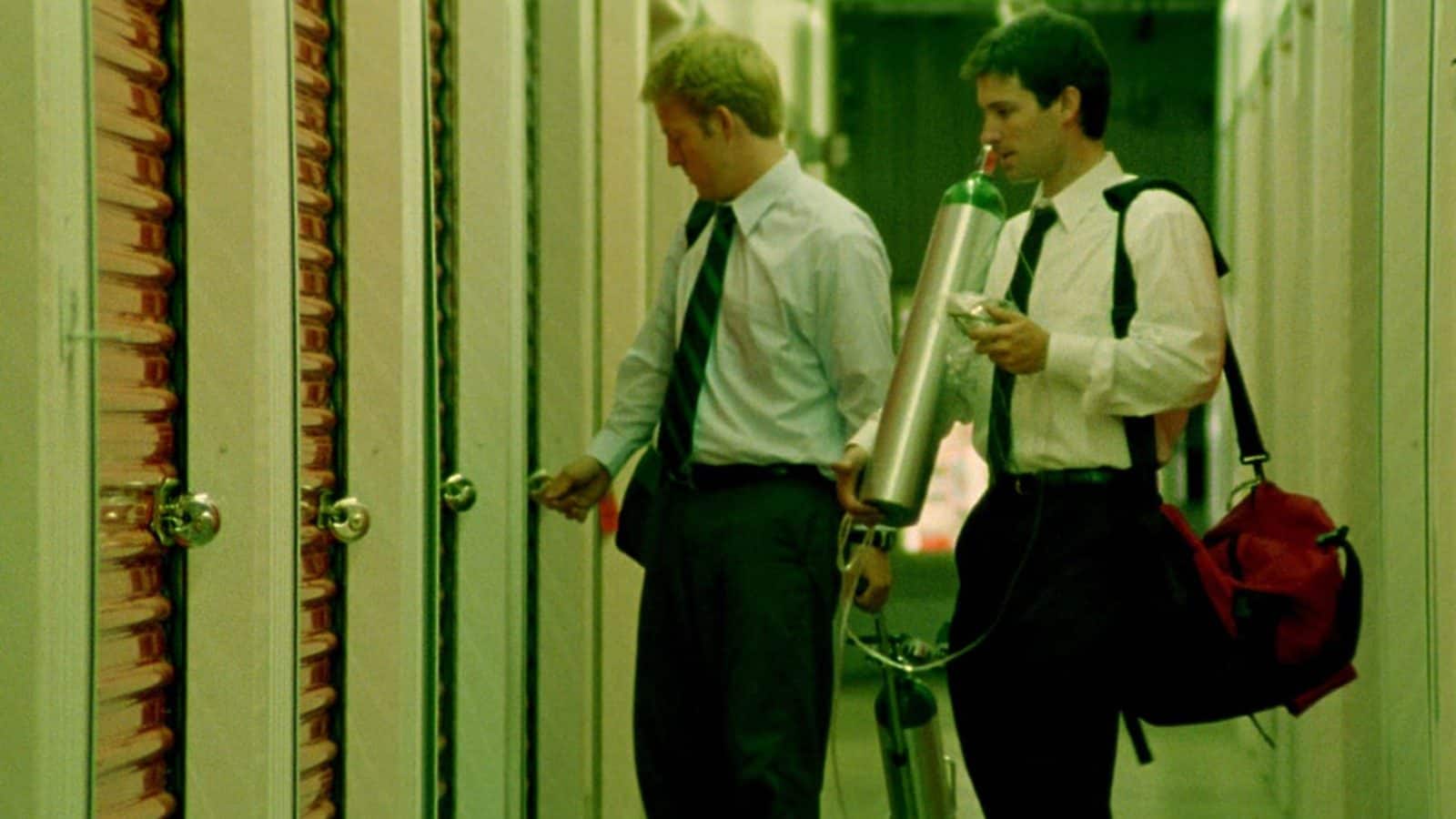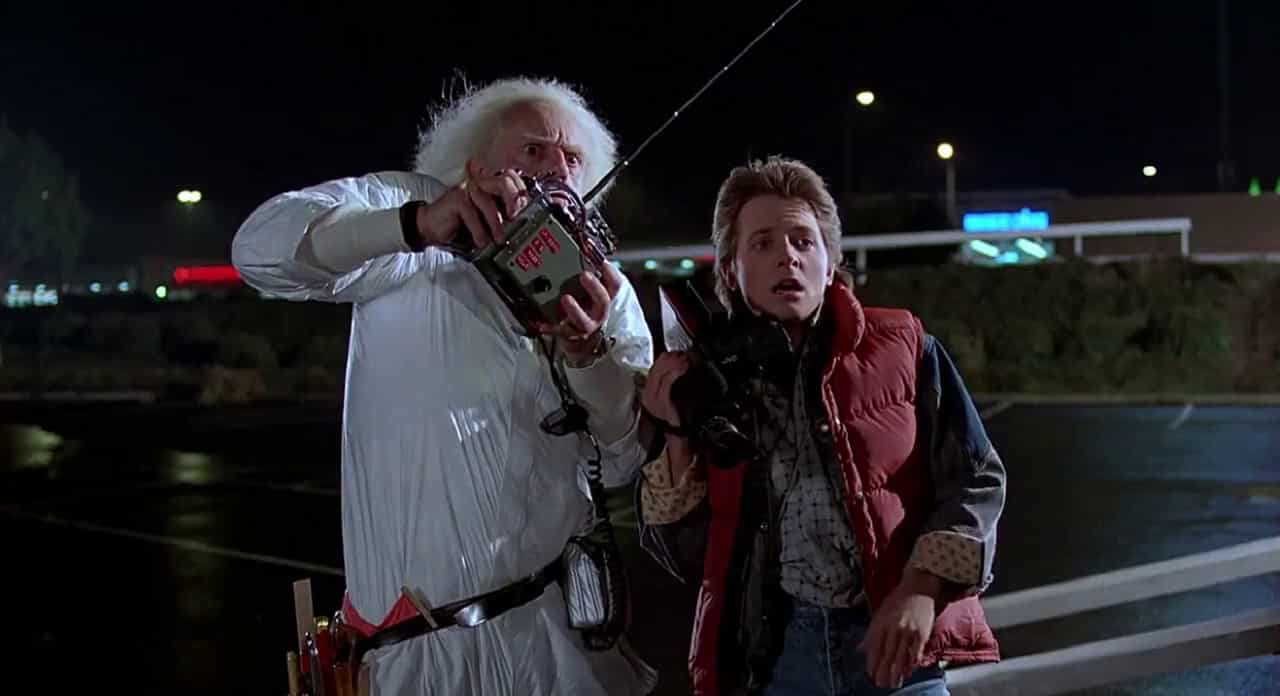Time Travel Torts: How Law Gets Dicey When Dealing with Groundhog Day
Time travel is weird. We saw it in All You Zombies where the lead reference became his own sire, father, lover, kidnaper, and bartender. We also saw it in Fusee, which is seemingly impossible to sympathise, flat after reading a book's worth of fall charts, essays, and attempted explanations. What makes sentence travel so confusing is that it warps the Pentateuch of physics and requires us to revisit everything we thought we knew about the world.
But time go by doesn't just buckle the laws of physics — it warps the law itself. In the past, I've explained how time travel obliterates statutes of limitations you said it the criminal Justice Department organization is powerless in the face of prison term travel polish off. This week, I'm going to occupy information technology one gradation advance to explain a eligible meter paradox — OR how prison term travel stool turn widely accepted effectual principles along their forefront.
For the purposes of this article, I'll be discussing instances in which metre travelers have the power to repeatedly go under indorse in time, to change the timeline supported former time trips, and to note the consequences of their actions. This would apply to the kinds of time traveling seen in Groundhog Day, 11/22/63, and Prince of Persia: The Sands of Metre, but it would not apply to the time travel seen in The Terminator, A Connecticut Yankee in Arthur's Court, or Avengers: Endgame.

Understanding the Collection Principles
There are two ratified principles that are in dispute to this analysis. The alphabet is that the law does not involve individuals to assistance strangers in need. For example, drivers are not required to help hitchhikers reach their destination, nor is a person required to call an ambulance if they see a person crack. (I considered this rule in my previous column on transporter financial obligation). Instead, requirements to help others arise from preexisting relationships. To inclination just a some examples, parents have an responsibility to help their children, doctors have an obligation to help their patients, and innkeepers have an obligation to protect their patrons. Generally speaking, in the absence of a special family relationship, the alone obligation one has is an responsibility non to harm person other. We can call this the Hippocratic principle. (Lawyers call in IT "obligation.")
The second rationale is that, when IT comes to avoiding harm, the law is obsessed with predictability rather than syntactic category province. As an example, suppose Alice drives to a restaurant to find fault sprouted a carryout grade. Alice doesn't expect to be away from her car identical long, so she leaves the keys in the ignition. While Alice is inaccurate, Bob steals her car, drives for few blocks, and then collides with other driver. In several states, the law would hold Alice causative the damage caused by Bob — true though Alice did non steal a car and did not driveway recklessly.
Wherefore? Because (according to the courts) it is reasonably foreseeable that a thief would steal a readily available car and reasonably foreseeable that a thief would drive negligently in his efforts to flee. Thus, it was lax of Alice to leave her keys in the car, and she can live held susceptible for whatever damage that would middling observe from that mistake.
In other words, the fact that the harm was imposed aside another person is not as important as the fact that it was reasonably foreseeable that the harm would take place. We can call this the foreseeability principle. (Lawyers call it "proximate cause.")

Applying Law to Time Travel (and Groundhog Day)
The Hippocratic principle and the foreseeability precept are well-well-grooved and can be practical consistently and (mostly) predictably. Time change of location, though, changes everything.
What makes time travel special is that time travelers have approach to more information than regular people — a prison term traveler pot bring an action, catch how it plays out, then, if the outcome is non in demand, go back and effort over again. Thus, in the world of a time traveler, the concept of "reasonable foreseeability" breaks down. There is no need for time travelers to balance risks or direct a cost-benefit analysis, since any negative consequence or event can be reversed with the flip of a switch.
Groundhog Day shows us just how herculean this noesis can be — Phil Connors was trapped in the equal day for 10 years, and A he approached the close of the grommet, he figured out how to keep many deaths, enact the perfect bank looting, and seduce 90% of women in the town, among other things. A person in that good-natured of situation would have ideal knowledge — virtually any action would have known and certain consequences, and a time traveler would know how each and every natural process would impact — for improve or worse — those just about him.
This agency that a sentence traveler could be held obligated for each of the consequences of his actions, careless of how attenuated those consequences are from the subjacent action. As a simple good example, consider a scenario in which Phil greets Alice on a corner. Because of the brief conversation, Alice is slow aside few seconds in her commute to work and arsenic a outcome gets run over by careless number one wood Bob. If Alice had not spoken with Phil, she would have avoided Bob entirely.

In the median world, we would enjoin that Bob is entirely to blame. Only if Phil is in a time closed circuit, then atomic number 2 would know that his conversation would pass to Alice's death and could avoid it in future loops. Thus, American Samoa far as Phil is implicated, talking with Alice is a reasonably foreseeable cause of her death — even though, from the perspective of everyone other, the consequence seems completely single from the underlying action.
Time go under too poses a problem for the Hippocratic rationale. The "suffice not harm others" principle presupposes the cosmos of a baseline status, as if to articulate, "You have an obligation non to act in a way that would damage a person, as measured proportional to the person's condition in the absence of your action." Time travel throws that baseline status into call into question.
Suppose that during the first course of events (i.e., in the maiden day of the time loop), Phil takes an action that causes (through just about chain of events) Alice to avoid an injury. In time loop B, Phil knows that through his actions in the "normal" course of events, Alice would have avoided an combat injury. Thus, in a way, Phil knows that he will cause her injury if he does not take the action. Put otherwise, clip travel raises the question of which timeline should be used to measure someone's baseline status (i.e., which timeline you should use to figure kayoed whether your actions have harmed another). A few voltage answers come with to mind:
- What the timeline would feel like without the time traveler.
- What the timeline looked same after the first iteration.
- Evaluate from each one loop independently, according to the typical rules.
- The best timeline for each person.
IT is non unhurried to choose between those (or any other) options. This is similar to the trouble we encountered when considering time annihilation as a crime — when a time traveler has the ability to switch at leave 'tween cardinal timeline and another, there is no principled basis to favor one timeline over some other. Hera, however, the problem is more challenging, since a time traveler's stark mastery over events means that a time traveler is causative everything that happens — and does not happen — in a particular timeline. In other words, a metre traveler is responsible for completely events, because a time traveler controls all events (provided that the clip traveler has the power to wallop those events in at the least one of the infinite potential timelines).

OR, put differently, when time travelers enter their last time loop topology, they of necessity make up one's mind — through their actions — which of an infinite number of timelines to enact. In this way, clip travelers can be said to have caused whatever harm or injury experienced in their chosen timeline. In this sense, indefinite could indicate that, in a world of time travel (and particularly time grummet time travel), one's duty not to impairment others amounts to an responsibility to service others avoid harm, since any decision not to avoid impairment would be same to a decision to impose that harm.
And then Interahamw, my consideration of time travel has been limited to the Groundhog Twenty-four hour period scenario — a time loop with countless iterations that does not take a physical toll on the time traveller from loop to loop. The analysis applies just as much to less extreme scenarios, but the implications of the analysis volition non be as severe.
For example, clock travelers with only three iterations of a time iteration testament have a much better understanding of how their actions affect others relative to non-time travelers — but their knowledge will non be anyplace near as developed Eastern Samoa an infinite time-looper. Thus, three-loop time travelers can live held to a higher standard of "reasonable foreseeability" than an average person, but they cannot be held to the same standard equally a Phil Connors-corresponding time traveler. In essence, the less knowledge a time traveler has about the consequences of their actions, the less responsible they are for those consequences.
Likewise, in a scenario with just a few iterations, the overall state of the timeline would still be extrinsic of the time traveler's control, so the Hippocratic principle would mostly apply in the same way as IT does in a planetary without time travel. (Of course, the to a greater extent timelines a time traveler has to choose from, the stronger the argument that the traveler's selection of a timeline amounts to a decision to impose the harm in this timeline.) The specifics of the scenarios and of one's legal obligations wish vary based on the number of meter jumps, the physical toll of those jumps connected the time traveller, the cognitive abilities of the time traveler, and the duration of the time windowpane (that is, repeating a day is much different than repeating a lifetime).

Ratiocination
Again — time move is weird. IT leads to unexpected consequences and counterintuitive results. But constabulary is also weird and also leads to unanticipated consequences and counterintuitive results. In 1995, a man was sentenced to life in prison for stealing a piece of pizza pie; Brian Dement is serving a life condemn in prison, scorn the fact that Deoxyribonucleic acid evidence conclusively proves he is virtuous; patrol think that saggy pants create probable cause for a search. The list goes on.
Information technology stands to reason that when you cross the streams of time travel and law, "You're going to see whatever serious shit." And that's just what we've seen — for time travelers, the rule that says you arse only be held accountable for the foreseeable would hold clock time travelers responsible for everything. The reign that says you experience no obligation to help strangers says that time travelers must service strangers.
On unmatched hand over, these rules are fantastic — it shows that a hypothetical era of time move out would introduce a revolutionary eld of moralistic responsibility and high moral character. Happening the former manus, for people the like Pine Tree State who ambition of time travel, these new rules provide yet another obstacle on the road to clock mastery. People often wonder: If time travel exists, why oasis't we seen any sentence travelers yet? Now we know the suffice: The legal fees and financial obligation connected with time move out are just too steep — not even the nigh sporting of explorers would dare risk that kind of legal pic.
Source: https://www.escapistmagazine.com/time-travel-torts-how-law-gets-dicey-when-dealing-with-groundhog-day/